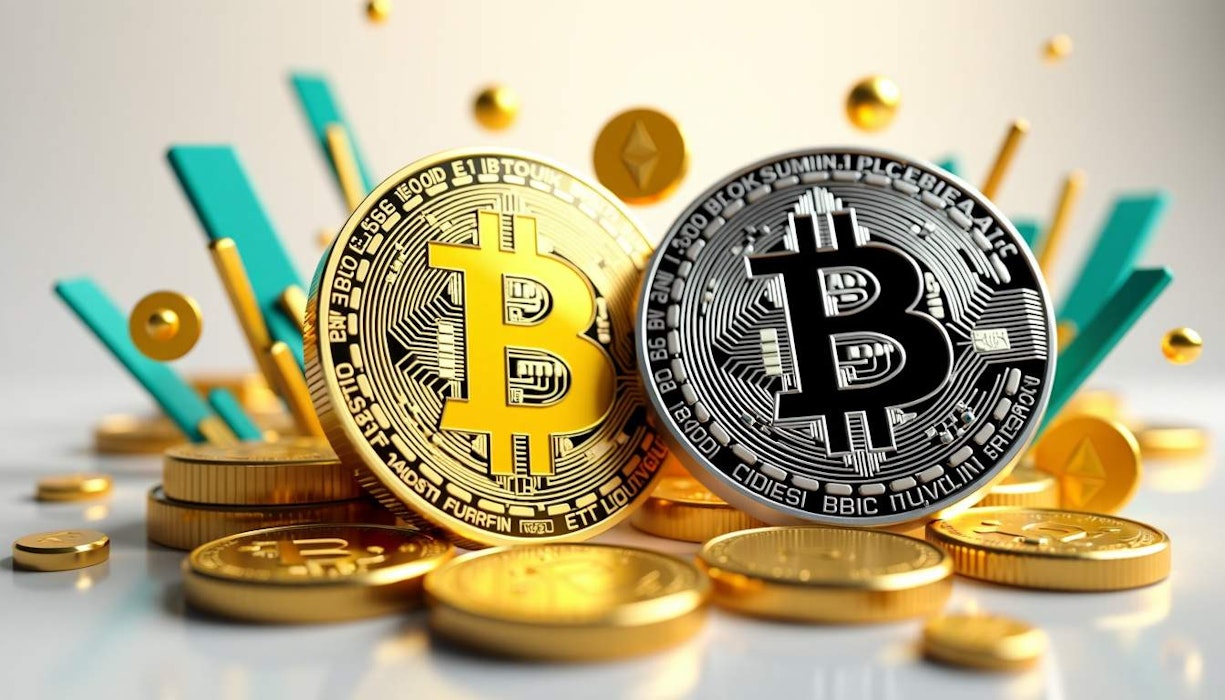I’ve been diving deep into the investment waters lately, and two names keep surfacing: Bitcoin and Gold. As we wade through these economically uncertain times, it’s crucial to understand what each of these assets brings to the table.
The Old vs The New
First up, we have gold. This shiny metal has been a go-to for centuries. It’s stable, reliable, and has a tangible quality that gives many people peace of mind. Central banks love it too; they’ve been on a buying spree lately, pushing its price up by about 30% this past year.
Then there’s Bitcoin. Often dubbed “digital gold,” it’s shown some insane growth recently. Over the past year, Bitcoin has skyrocketed over 122%, while gold just sat there looking pretty. What makes Bitcoin so appealing? For one, it’s decentralized. No middlemen or central authorities can mess with your holdings. Plus, you don’t have to worry about someone physically stealing your digital coins (unless they get your keys!).
The Wild Ride of Bitcoin
Now let’s talk volatility. If you’re looking for stability, gold is like that calm friend who never gets too high or too low. Bitcoin? It’s the party animal who swings from ecstatic highs to gut-wrenching lows in a matter of days.
Studies show that Bitcoin's annualized volatility is about ten times that of gold! Sure, it offers high returns—47% CAGR over the last decade—but with great reward comes great risk (and sometimes regret).
Interestingly enough, when you measure risk versus return using something called the Sharpe ratio (which basically tells you how much return you're getting for each unit of risk), gold comes out on top.
The Institutional Game Changer
One thing that might tip the scales for Bitcoin is institutional investment. Big players entering the game lend legitimacy and stability to what was once considered a wild frontier. With more infrastructure being built around it—think ETFs and custodial services—it’s becoming easier for these institutions to hold large amounts of Bitcoin.
But here’s where things get tricky: as more institutions pile in, so does the need for regulatory clarity. And let me tell you; crypto regulation is still in its toddler phase—lots of stumbling around and occasional tantrums.
Is Bitcoin Really A Hedge?
Now onto an interesting debate: can Bitcoin really serve as a hedge against inflation? Gold has stood the test of time in this regard; its value tends to hold up even when fiat currencies are melting down.
Bitcoin? Not so much… at least not yet. Studies suggest that during periods of heightened uncertainty (hello!), Bitcoin tends to act more like a tech stock than a stable asset.
And let’s be real—Bitcoin's high volatility makes it risky as hell! Many experts still see it as a speculative bubble waiting to pop rather than a reliable store of value.
Decentralization: Double-Edged Sword
Bitcoin's decentralized nature is both its strength and weakness. On one hand, it shifts trust from traditional institutions (which many people are starting to distrust) to algorithms and encryption software.
On the other hand… good luck trying to get consensus on anything! Need an upgrade? Better hope everyone agrees because there ain't no central authority to make decisions fast!
Plus, decentralization complicates regulation—a big hurdle if mainstream acceptance is on the horizon.
Summary: Finding Balance
So where does this leave us? If you're looking for long-term stability with minimal risk... gold might be your best bet right now.
But if you're willing to brave some storms for potentially massive rewards... maybe it's time you dipped your toes into those turbulent waters called bitcoin
As we navigate this evolving landscape together... perhaps there's room for both old stalwarts and new challengers in our investment portfolios
